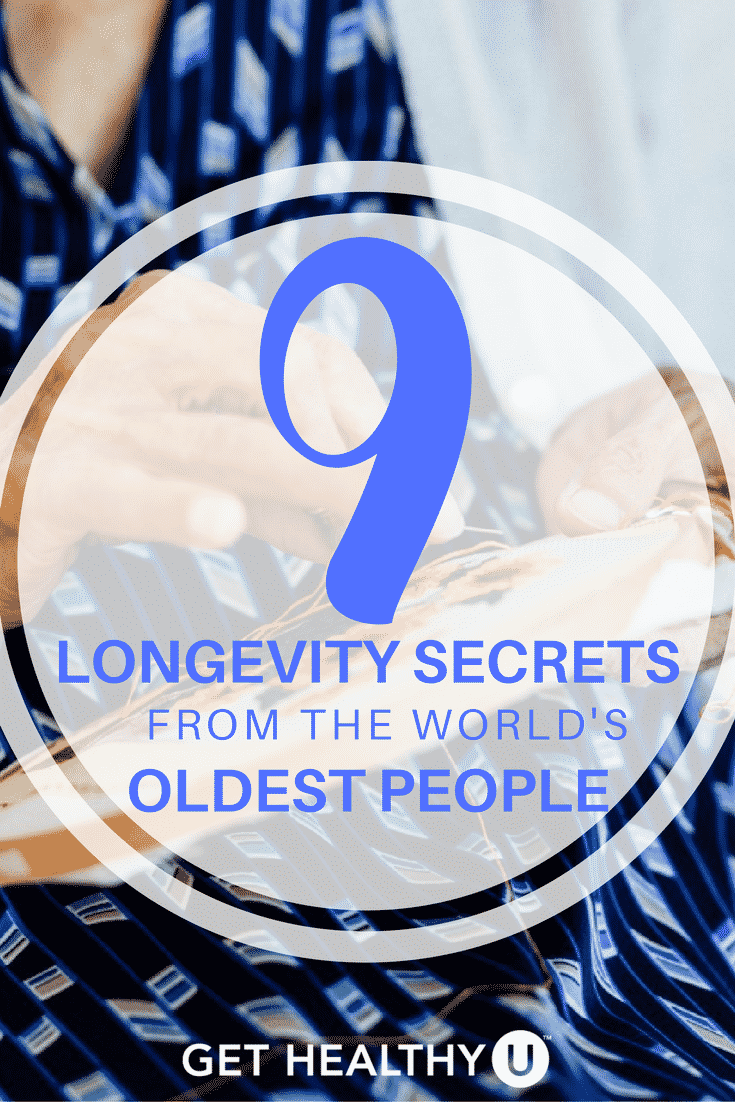This post contains affiliate links. Please see our disclosure policy.
Living longer is a noble goal, but most of us also want to live better. Aware of this universal yearning, Dan Buettner and National Geographic teamed up several years ago to pinpoint places in the world where people live the longest—and with a high quality of life. You may have heard of the book that was born from this research, The Blue Zones. In it, Buettner identified five places in the world where people lived to be 100 at ten times the average rate—areas he named “the blue zones.” They are the following:
- Ikaria, Greece
- Loma Linda, California—an Adventist community in California
- Sardinia, Italy
- Okinawa, Japan
- Nicoya, Costa Rica
Buettner and his team outlined the similar habits, practices, and attitudes that people in these areas share which contribute to their long and happy lives. In particular, Buettner gleaned a lot of wisdom from the Okinawa, home to the world’s longest-lived woman. We loved the findings (especially the thought that most blue zone centenarians enjoy a daily glass of wine!) and have tried to incorporate them into our daily lives ever since.
There’s never a bad time to check in and see if you’re doing everything you can to be healthy, so we thought we’d share some points that have stayed pertinent to us on longevity. See how many you can add to your routine to add happy, healthy years to your life.
How To Live A Longer, Happier Life
1) Maintain a Purpose
A reason for getting up in the morning sounds both overly simple and achingly complex, but it’s at the cornerstone of healthy, happy centenarians. The Nicoyans refer to it as one’s “plan de vida,” and the Okinawans refer to it as “Ikigai.” Both roughly translate to “why I wake up in the morning.” As we age, it’s important to maintain a daily purpose—whether it’s starting a new business, mentoring a younger person, or pursuing a creative endeavor that fulfills us.
Adopt this tip: Don’t stop having a five-year plan when you’re no longer working a 9-to-5. Set short-term and long-term goals every five years, including goals that help other people by mentoring, volunteering, or spending time imparting your wisdom on the next generation.
2) Stay Active
People in blue zones tend to make movement a natural part of their day; they run errands on foot, handle chores manually, and take up calming practices such as yoga or tai chi that link movement to breath. Whether it be gardening, walking to the market, or just dancing, they think of movement as something to intersperse throughout the entire day, not just something to “get over with” in a 20-minute burst.
Adopt this tip: Make it your mission to walk or bike places that are a mile or less from where you live. Vow to always take the stairs, not the elevator. Park farther away than you need to. These tiny steps (literally) can add years on to your life.
3) Become Plant-Powered
Based on his research, Buettner found that the world’s centenarians aren’t necessarily vegans or vegetarians, but they do eat a largely plant-based diet. Plants contain natural anti-cancer properties and antioxidants, plus cholesterol reducers and blood-clot blockers—all reasons that people in blue zones suffer less frequently from cancer, heart attack, and stroke than other places in the world. They combine a predominantly plant-based diet with small amounts of animal protein, nuts and legumes, and healthy fats. Oh, and they drink in moderation—considered no more than 1-2 glasses of wine per day—so fret not, fans of vino.
Adopt this tip: If veggies bore you, mix up your usual routine of romaine salads: aim to try a new veggie every day for a week. Try our 28-Day Veggie Challenge for inspiration!
4) Eat Until You Are 80% Full
The Okinawan saying “hara hachi bu” is a mantra that’s recited before mealtime to remind you to stop eating when you’re 80% full. One of the common pitfalls of the Standard American Diet is that our portions are relatively huge compared to those in other countries. In blue zones, people tend to eat their smallest meal in the evening and their biggest meal at the start of the day.
Adopt this tip: Make breakfast your biggest meal of the day and keep portions under control for dinner. Try to stop eating when you are 80% full—before you feel bloated, tired, and like you’ve just had one too many bites.
5) Establish Healthy Ways To Manage Stress
Stress is inevitable no matter where you live, but how you handle stress can affect your health. People with long life spans tend to have routines in place to help manage their stress. Okinawans take time each day to reflect on their ancestors; Ikarians take naps to break up the day; and Adventists pray.
Adopt this tip: Dedicate at least 15 minutes a day to something that helps manage stress; be it meditation, reading, or going for a lunchtime walk with a friend. If you think fitting in 15 minutes is hard, know that other cultures place a higher value on de-stressing, and adding more of it to your day could add years to your life. Prioritize self-care and stress management for your health.
[easy-tweet tweet=”Prioritizing self-care and stress management is not selfish; it is crucial for living a healthy life.” user=”chrisfreytag”]
6) Stay Sociable
People who live a long time maintain strong social ties. The Okinawans maintain close-knit social groups within their communities called “moais”—gatherings of people who provide emotional support in times of need. A big part of stress management relies on the security you have when you know a close-knit group of friends is only a phone call away for whatever life throws at you.
Adopt this tip: Make your friendships a priority. If weeks go by without being able to get together, call up your besties for a quick chat to check in. And never be afraid to make new friends, either!
7) Enjoy The Sunshine
Vitamin D is essential for healthy bones, a balanced mood, and a strong immune system, so spending time in the sunlight is one way those in blue zones stay young and healthy. Get out in nature as often as possible, even if it’s just for a daily lunchtime walk outside the office.
Adopt this tip: Make sure you get out in nature at least once a day, and if you live in a climate that doesn’t see much of the sun, be sure to take a Vitamin D supplement.
8) Get Spicy
Okinawans are known to grow ginger, turmeric and mugwort in their gardens—all three have proven medicinal qualities. Anti-inflammatory herbs and spices like these are super healthy; add them to your dishes whenever possible.
Adopt this tip: Try turmeric in your curry or experiment with adding ginger in your smoothies. These anti-inflammatory ingredients play a major part in preventing diseases like Alzheimer’s or certain cancers.
9) Put Family First
One thing all the blue zones have in common is that they place an importance on family. Cousins, siblings, and aging grandparents live at home together, instead of in nursing homes. They spend time eating meals together, taking walks together, and keeping traditions alive, either religious or not.
Adopt this tip: Don’t wait for the holidays to gather family members: schedule a weekly game night for anyone in the family to join in on. Tell everyone to bring a dish and enjoy breaking bread and spending quality time together. It’s one of the reasons we all want to live longer and better—to be able to share our lives with the ones we love.


 />
/>

